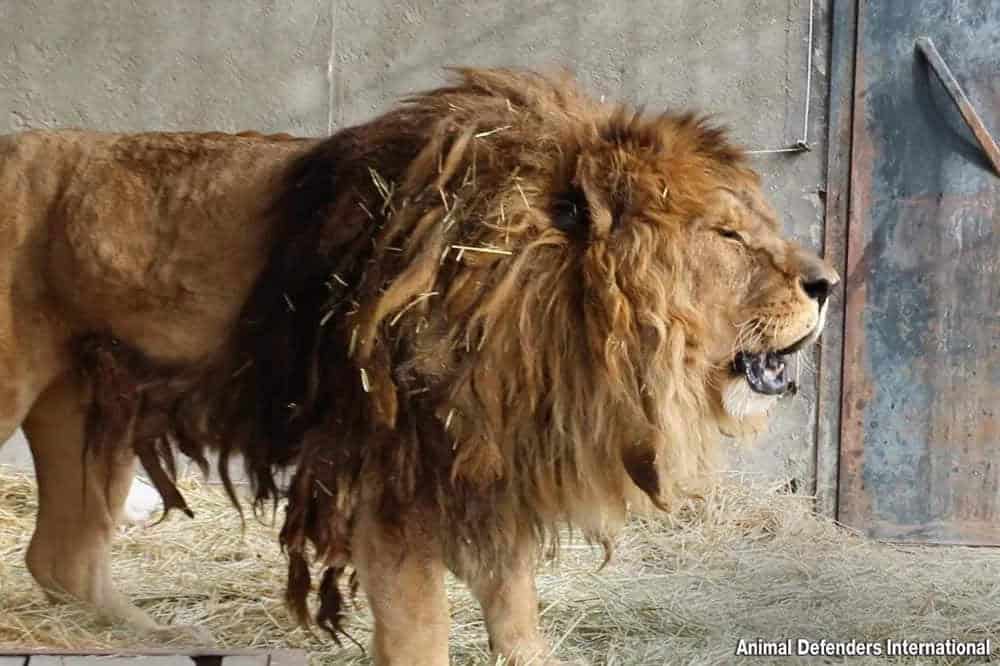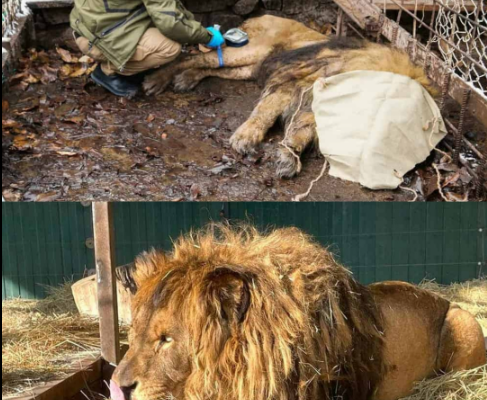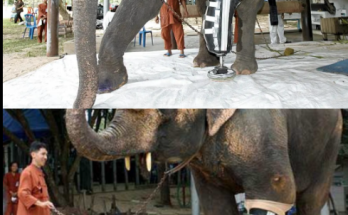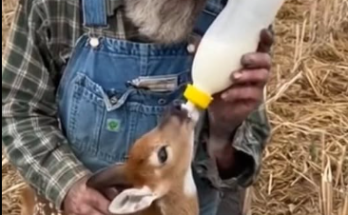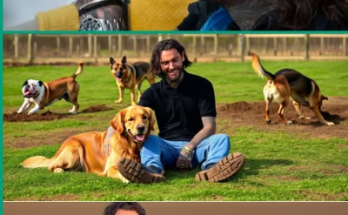For fifteen long years, Ruben the lion knew nothing of freedom.

No grass beneath his paws.
No wind in his mane.
No roar from another of his kind to answer his own.
His world was a cage — a small, concrete box at a private zoo that had long been forgotten by the world.
The Last Lion Left Behind
When the zoo closed five years ago, all the other animals were taken away — bears, tigers, birds — all except Ruben. The zoo’s owner, a Russian oligarch, had left the country, and no one came back for him.
There was no space in the trucks, they said. No room for one more cage.
So Ruben stayed.
Day after day, season after season, he waited — for food, for company, for something to change. But no one came. The silence around him grew heavier than the iron bars that trapped him.
In the cold winters, frost crept into his cage. In the blistering summers, the air burned dry, and the concrete seared his paws. His mane thinned, his muscles weakened, and his roar — once a proud thunder — faded to a rasp.
For five years, Ruben was the only living creature in that abandoned zoo.

But somewhere, far away, someone heard his silence.
The Rescue
When Animal Defenders International (ADI) learned of his situation, they knew they couldn’t leave him behind. The mission wasn’t simple. Ruben’s cage sat near the Armenia-Azerbaijan border — a tense, politically sensitive area. Every movement had to be carefully planned.
Yet, no obstacle was too great for a life worth saving.
When rescuers finally arrived, Ruben stood motionless at the back of his cage, unsure if the sudden noise and movement meant danger or deliverance. His eyes, once dim with hopelessness, watched as the team cut through the metal bars that had held him prisoner for so long.
And then, for the first time in fifteen years, he stepped out.
His legs wobbled. His muscles trembled. The sunlight hit his face, and he blinked hard — as if his body couldn’t believe it was real.

A New Beginning
Ruben was transported to a temporary sanctuary in Armenia — a safe space where he could begin to heal.
The first night, he lay down on a bed of hay instead of cold concrete. He sniffed the air, now thick with the scent of earth and grass, not iron and dust. And for the first time in his memory, the walls around him didn’t echo his own breathing.
Caretakers noticed how cautious he was — how he hesitated before moving, how he listened intently to every new sound. Years of isolation had left scars deeper than the physical ones. His fur was matted, his teeth worn, and his movements stiff from what might be an old neurological injury.
But even in his fragility, there was something unbreakable — a spark of the lion he once was.
The Road to Freedom
Ruben’s story was far from over. ADI began preparing for the next step — his journey to their wildlife sanctuary in South Africa, where he could live among other lions.
It took months of planning. Medical teams readied treatments for his teeth and mobility issues. Custom crates were built for safe transport. Every detail mattered, because this journey wasn’t just about moving an animal. It was about giving back the life that had been stolen from him.

When he arrives in South Africa, Ruben will step into a world he has never known — vast plains, warm sunlight, soft earth beneath his paws. His new home will have multiple enclosures designed for freedom and healing. Platforms to climb, trees to shade beneath, spaces to run and stretch for the first time in his adult life.
And, most importantly, voices to answer his roar.
The Sound of Freedom
Experts believe that lions use their roar to connect with others — to declare presence, to find family, to remind the world they exist. For years, Ruben’s roars went unanswered. In South Africa, that will finally change.
Soon, when he calls out, others will answer.
Caretakers imagine the moment: the first morning at his new sanctuary, the African sun rising over the fields, and Ruben — his mane golden in the light — letting out a deep, trembling roar that echoes across the grasslands.
It may sound fragile at first, uncertain. But as the days pass, it will grow stronger.
And maybe, just maybe, the sound of other lions will meet his — a conversation fifteen years in the making.
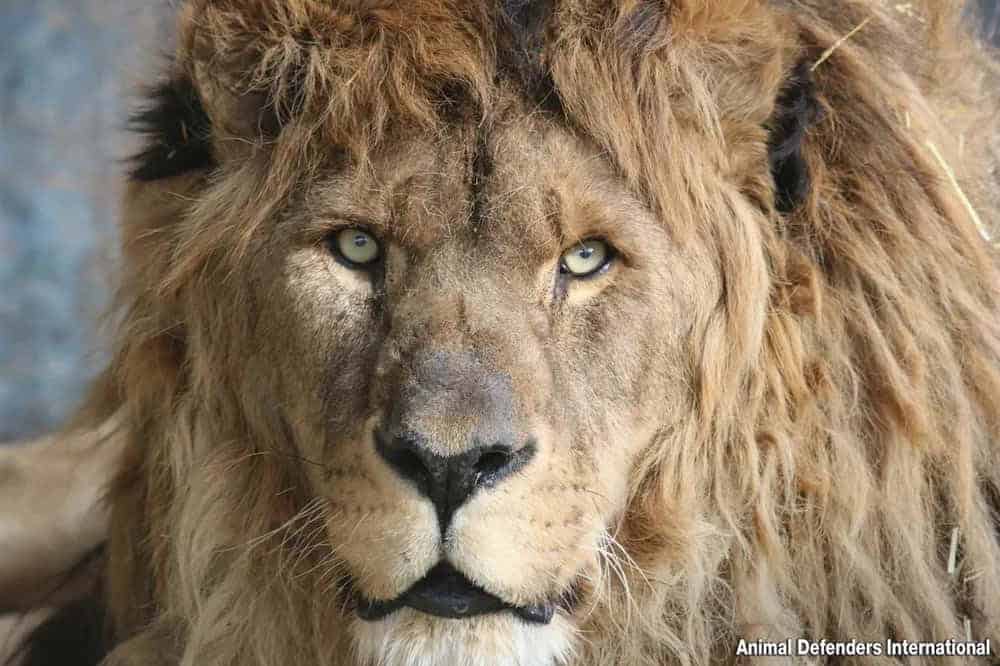
More Than a Rescue
Ruben’s story has reached people across the world, touching hearts not because he’s a lion, but because he reminds us of something deeply human — the need to be seen, to be free, to belong.
He spent most of his life forgotten, yet he never stopped surviving. And when compassion finally found him, he responded with trust.
That trust — quiet, cautious, but real — is what makes his story so powerful.
It’s proof that even after years of loneliness, the spirit can heal. That freedom, even delayed, still matters.
And that one act of mercy can rewrite an entire life.
A Roar Remembered

In a few months, Ruben will walk under the African sun, the same sun his ancestors once knew. He’ll feel the grass, breathe the wind, and listen — not for silence, but for life.
He will never again be the forgotten lion in a broken cage.
He will be what he was always meant to be — wild, free, and home.
Because some roars, though silenced for years, never truly fade. They wait — for compassion to answer.
And when it finally does, the whole world listens.
